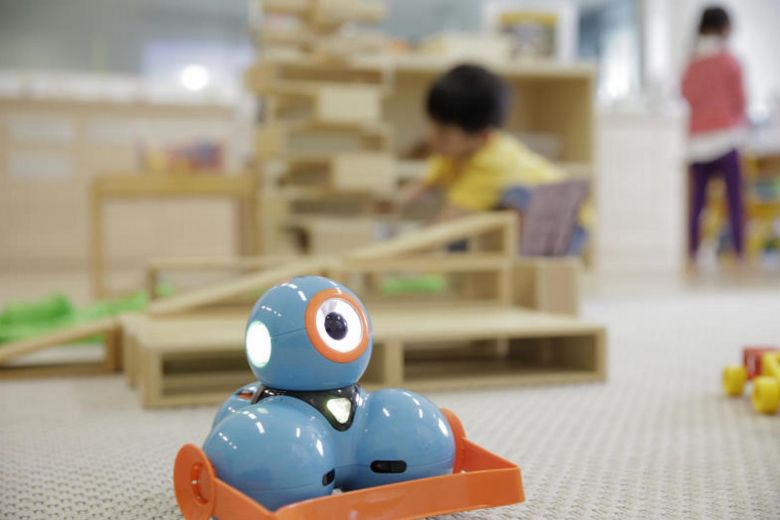A pre-school for early childhood students at Temasek Polytechnic (TP) to observe and practise teaching will soon stop operating, to some parents’ disappointment.
The Preschool Learning Academy, or Play@TP, will cease operations by the end of December next year, though the polytechnic hopes to find another operator to take over the centre.
The centre currently has 69 children aged two to six.
Parents were told last month that TP had “made the difficult decision” to close its pre-school, as its early childhood studies diploma course will be transferred to the National Institute of Early Childhood Development (NIEC).
It was announced in August that the new centralised training institute for pre-school teachers will enrol its first batch of students in 2019 and take over the running of the early childhood studies courses from polytechnics.
Some parents felt it was a pity to close the experimental pre-school, which opened in 2010, as their children had benefited from good teachers and innovative approaches.
Play@TP, one of the few pre-schools here which also serve as “a living laboratory” for researchers, adopts an inquiry-based approach so children can explore topics they are interested in, rather than having a set theme for lessons.
Polytechnic student-interns are paired with a teacher-mentor to teach classes there for 22 weeks, while other students spend 30 hours per year there engaged in small-group teaching and observation.
The pre-school moved to bigger premises within TP in January last year and recently expanded to offer full-day childcare services in July this year.
In response to queries from The Straits Times, the Ministry of Education said there are no plans for the new institute to immediately operate a pre-school centre directly.
Instead, its initial focus is “to quickly scale up its early childhood training capacity and capabilities to support the increased intake of early childhood courses to meet industry demand”, said a spokesman.
The institute intends to partner different pre-schools in areas such as practicum stints and research to ensure that its training remains relevant.
The spokesman added that having to run a pre-school while linking up with many pre-school centres will detract from NIEC’s core mission of early childhood training.
A TP spokesman said it will call for a tender early next year for an operator to run a new childcare centre at Play@TP’s current premises from January 2019, to minimise disruption to parents and their children. “TP will make every effort to select an operator who would be able to provide high-quality pre-school education and care at reasonable prices,” she said.
The outcome of the tender will be known by June next year.
There is another centre, Bright Juniors @ Temasek Polytechnic, located on campus, and TP is helping to find alternative placements there, among other pre-schools, for children affected by Play@TP’s closure.
Parents said they appreciated the school’s efforts to help their children.
A 49-year-old lecturer whose two children, aged four and six, attended Play@TP, said: “Parents are satisfied with TP’s proposal and felt that the management has done their best.”
But she still feels a “tinge of regret as Play@TP is one of its kind”. Beyond teaching methods, the centre has developed a culture of love and care for the children.
She has decided to transfer her son to another kindergarten near her home.
Dr Le Thu Thao, 35, a researcher whose older daughter, now in Primary 2, attended the centre, said: “What the teachers taught was very much initiated by the kids, so they were all very involved and interested in going to school.”
Her younger son, three, also goes to Play@TP but she is now looking for another pre-school. “It’s a pity that this school model can’t continue,” she said. She added that the children could undertake simple projects with the poly students, such as by having the children design games for a carnival games stall.
Another parent, social worker Lim Shaw Hui, 45, said she was very impressed by the school’s teaching methods. Her son, six, is repeating Kindergarten 2 at Play@TP next year because of his special needs. Her older son, now eight, also attended the school.
“My sons had very good teachers who were serious about their craft. There was a lot of observation, experiments and documentation of the children. With good-quality teachers and the right mindsets in research, it’s a good model for learning,” she said.
Article & Photo from Straits Times


